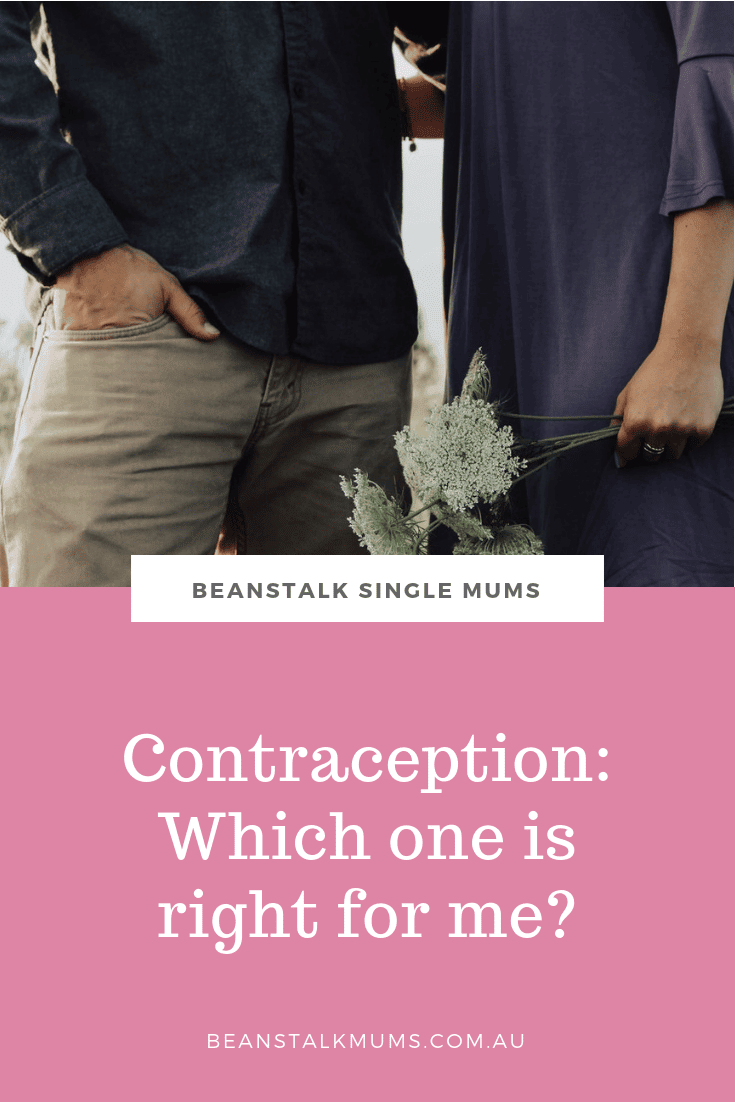
With so many different contraception methods available, it can be difficult to know which one you should use.
Let’s explore the different options, the benefits, risks and effectiveness, so you can make the best decision for you.
Hormonal contraceptives
Oral contraceptive pill
The most common contraceptive is the oral contraceptive pill (OCP), also simply referred to as ‘the pill’. The OCP works by stopping you from ovulating so you can’t fall pregnant. Benefits of the OCP include a high effectiveness, and some women find the OCP clears their acne. However, there are risks with taking the OCP, such as nausea, weight gain, and an increased risk of stroke or blood clots. The OCP is an ideal contraceptive short term, but best not used for long periods of time.
The progesterone-only pill (POP)
The progesterone-only pill (POP), or mini-pill, is ideal for women who are smokers and women over 35 years old. It is similar to the OCP, however you need to take the POP at roughly the same time every day, so this is not a great option if you work irregular hours or are forgetful. The POP may also cause irregular vaginal bleeding.
Intra-uterine devices (IUDs)
Intra-uterine devices (IUDs) are a set-and-forget type of contraception, which is helpful if you don’t want to remember to take a pill each day. IUDs can last for 5-10 years, so they are great if you want a long lasting and cost-effective contraceptive.
There are two types available – hormone-releasing or copper IUDs. They are both extremely effective (over 99% effective) and easy to remove when needed. However, there may be some risks, such as the risk of an infection after the IUD is inserted, or the IUD may move out of place. They may also may your periods heavier, more painful, or cause breast soreness.
Injections and implants
Injections and implants are also increasingly common contraceptive options, and they are similar in how they work (releasing progesterone into your body to prevent ovulation).
These options last less longer than IUDs – around 3 months for the injection and 3 years for implants. They are both highly effective (around 99% effectiveness). The contraceptive injection is beneficial as you only need to get the injection every 3 months, however it may cause unwanted side effects such as headaches, mood swings and weight gain.
The injection is best not used for long periods of time as it can cause bone thinning, and it may make it difficult to conceive if you want to have a baby later down the track. Benefits of the implant include reducing acne and making periods lighter. However, some women find they experience unwanted side effects with having implants, such as depression, mood swings and more frequent vaginal bleeding.
Barrier contraceptives
Barrier methods of contraception include condoms (male and female condoms). Benefits include not messing with your hormones and protection from STIs. There are some risks though – condoms may break or come off. It can also be inconvenient to use a condom if you have a regular partner – you may decide to opt for a longer lasting contraceptive.
Sterilisation
A permanent contraceptive option is having your fallopian tubes tied or cut. This is generally 100% effective at preventing pregnancies, although there is a tiny chance you may fall pregnant again. However. it’s a decision not to be made lightly. Consider discussing with your GP about having your tubes cut. As it does involve minor surgery, there are risks that are involved with all minor surgeries, such as infections, accidental incision and recovery from anaesthesia.
Finding the right contraception for you (cont.)
Natural methods
Fertility awareness, abstinence, withdrawal or a combination of these can work well as natural contraception methods. The idea is that you get to know when you are most fertile (the 5 days leading up to ovulation) and either abstain from intercourse on these days or your partner withdraws before ejaculation.
When done properly, the fertility awareness method has a high rate of success. This involves taking your basal body temperature first thing every morning and checking your cervical mucus every day. Combining natural methods with barrier contraception is a safer option if you want to avoid pills/injections/IUDs, with no side effects, and the only risk is that you could fall pregnant.
It’s best to seek training from a professional in natural family planning/fertility awareness methods to ensure the best success from this method.
Emergency contraception
In case of emergencies, such as condoms breaking and “accidents”, there are options! There is the ‘morning-after pill, available from chemists. Copper IUDs can also act as emergency contraception if inserted 5 days after conception.















